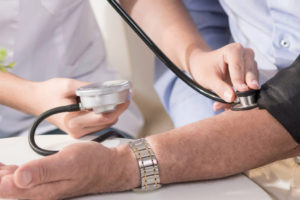Being Proactive About Your Health
Typically there are two types of patients. Patients that are diligent about their health care needs and are invested in what the medical provider offers. The other type of patients are reactive and will only follow up with a medical provider when there is a health care crisis. Our view of health tends to help lay the medical road map to what health care needs lies ahead.
At Jupiter Internal Medicine Associates, our medical team encourages our patients to look into what preventive healthcare services are available to you and your family. Primary healthcare shouldn’t be looked at as a reactive service that should be used to help you recover, but rather as a proactive service used to prevent diseases.
Preventative medical care is just as important as reactive medical treatment, if not more so. According to the CDC, chronic diseases like heart disease, cancer, and diabetes are responsible for 7 out of 10 deaths in the United States each year. Many of these deaths are preventable through proactive treatment. Below is a helpful list of six preventive medical services that can help you improve your health, and avoid chronic diseases.
Regular Medical Checkups
Regular Checkups- It is essential for people to make regular doctor appointments, especially when they are healthy so that they can stay healthy. Doctors can point out habits that you have that will keep you healthy and point out some bad habits that potentially derail your health. Going to the doctor on a regular basis is a way to catch a chronic disease early and will give yourself a better chance to overcome it. For example, if you go to the doctor’s office and are diagnosed with stage one cancer, you have a much better chance of beating it then if you were diagnosed with the cancer too late.
Monitoring Your Blood Pressure
Blood Pressure Monitoring- High blood pressure is not good for your heart. If you monitor your blood pressure regularly, you can instill habits that will lower your blood pressure -such as exercising and changing your diet- to help prevent any heart conditioned caused by high blood pressure.
Check Your Cholesterol
Cholesterol Tests- Like high blood pressure, high cholesterol is not good for your heart. Being able to test your cholesterol levels early will help you catch diseases early or prevent them all together by changing dietary habits.
Monitoring Your Blood Sugar
Diabetes- According to the National Institute of Diabetes and Digestive and Kidney Diseases (NIDDK), in 2015 30.3 million Americans (9.1% of the population) had diabetes. Diabetes affects 1 in 4 people over 65 years old. Use your primary healthcare provider to test your blood sugar levels to be sure that you do not have diabetes.
Establish Annual Cancer Screenings
Cancer Screenings- Cancer screenings are covered under most primary healthcare providers, and usually serve to find breast cancer, cervical cancer and colorectal cancer. Like previously mentioned, early detection is the key to beating cancer.
Monitoring Your Weight
Obesity- Your doctor can tell you if your weight and body fat levels are normal, or if you are considered obese. Obesity can lead to many diseases such as heart attacks, diabetes, and others. It is critical that your doctor knows if you are obese, so that you can collaborate on a plan to beat it.



